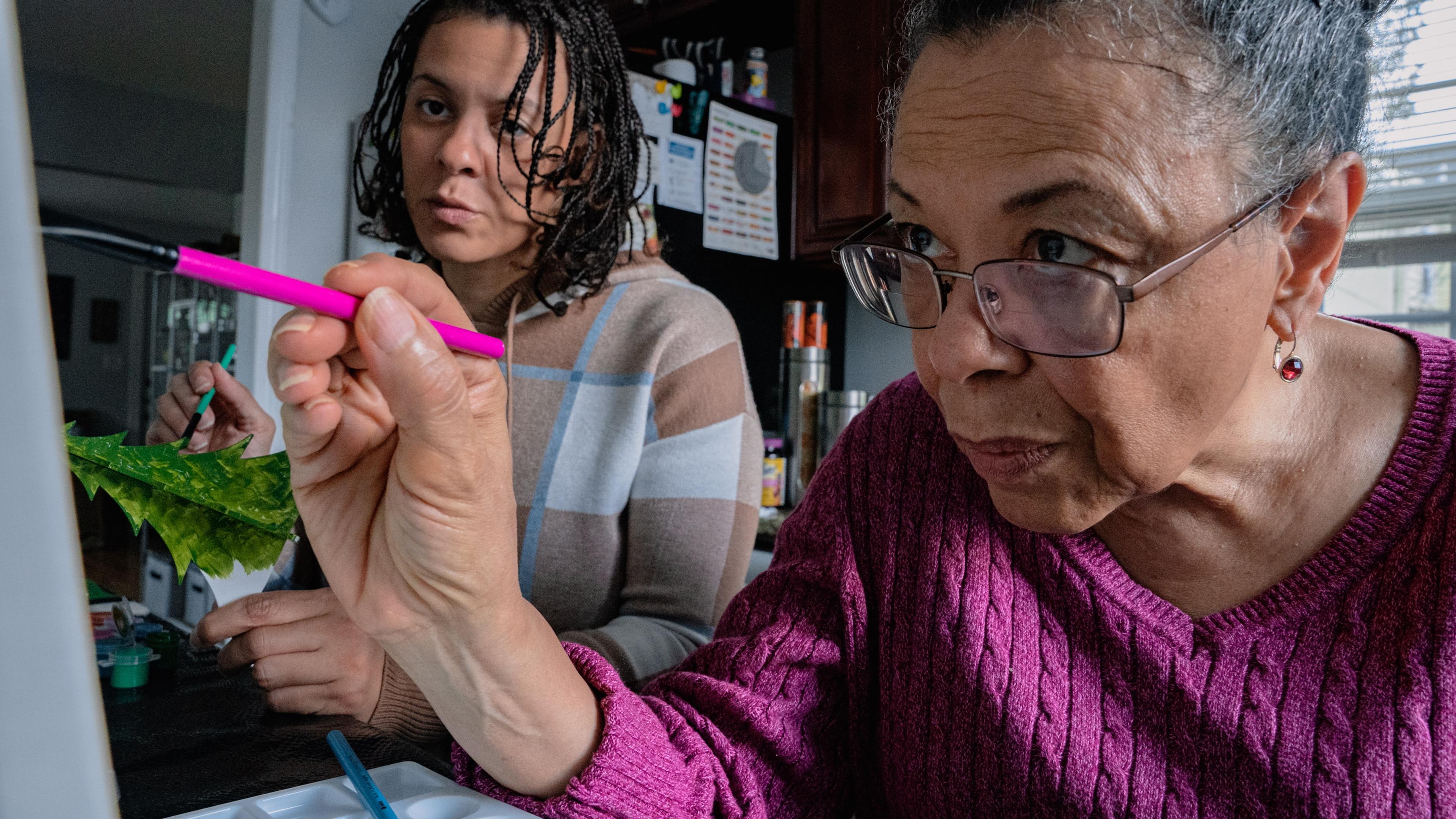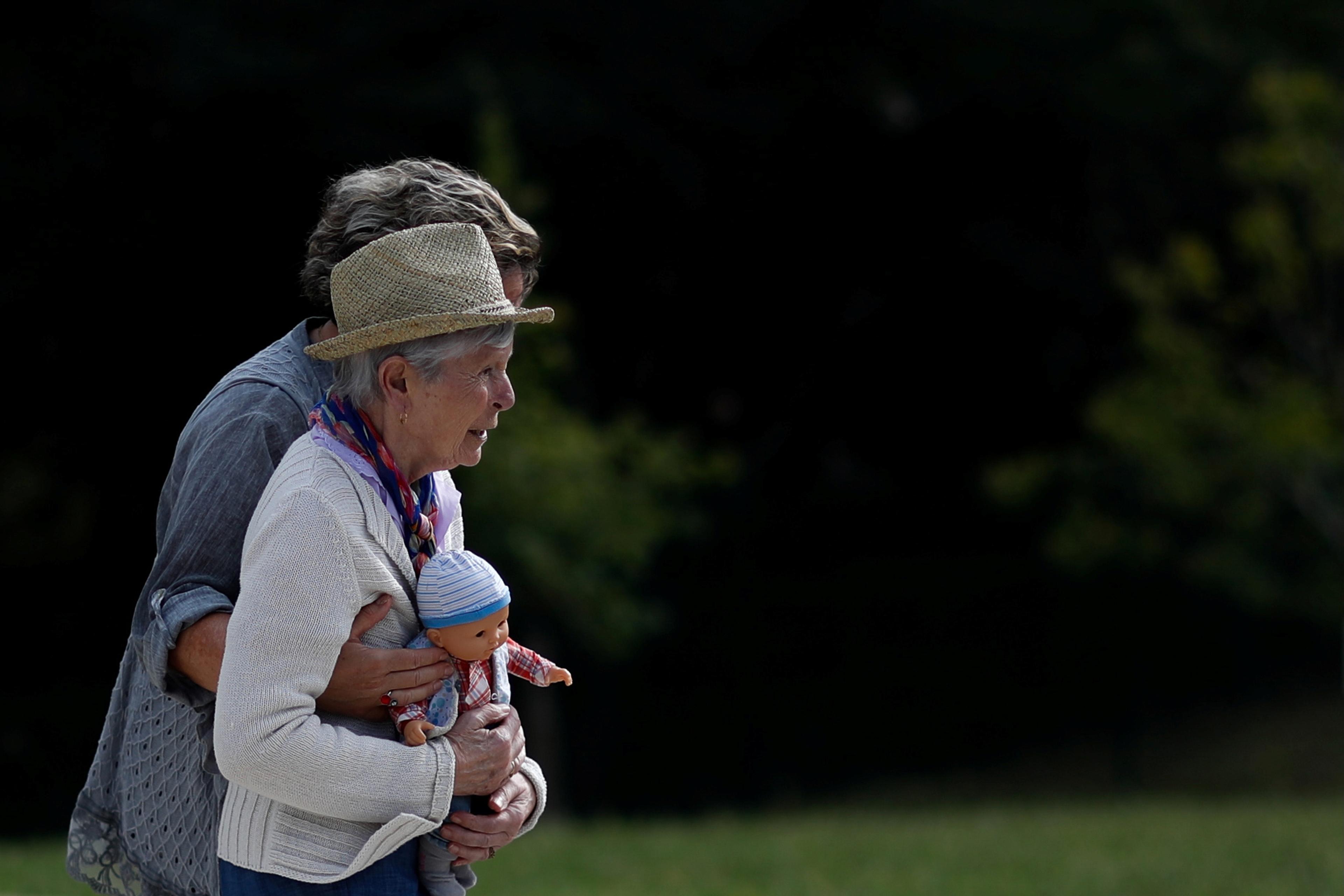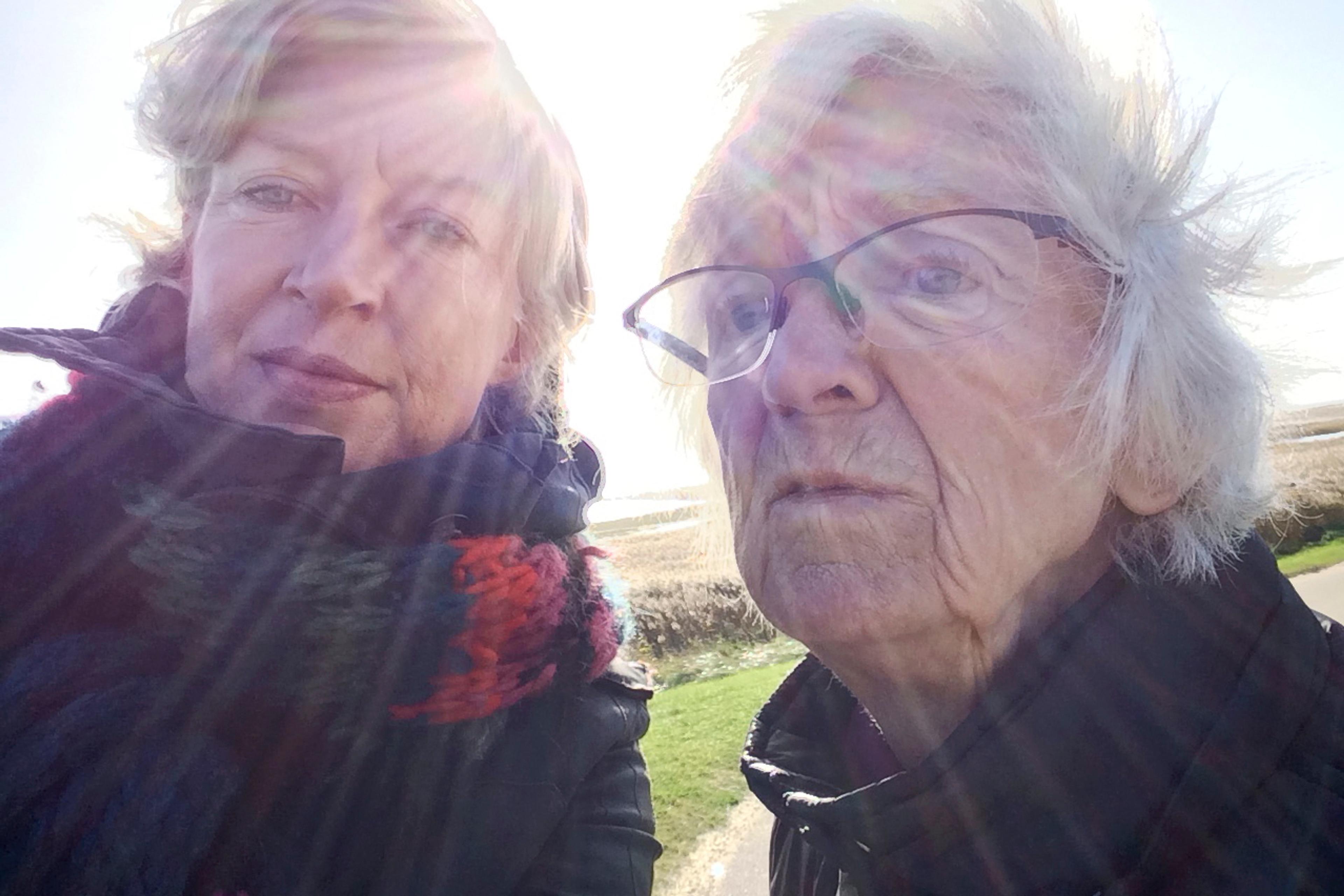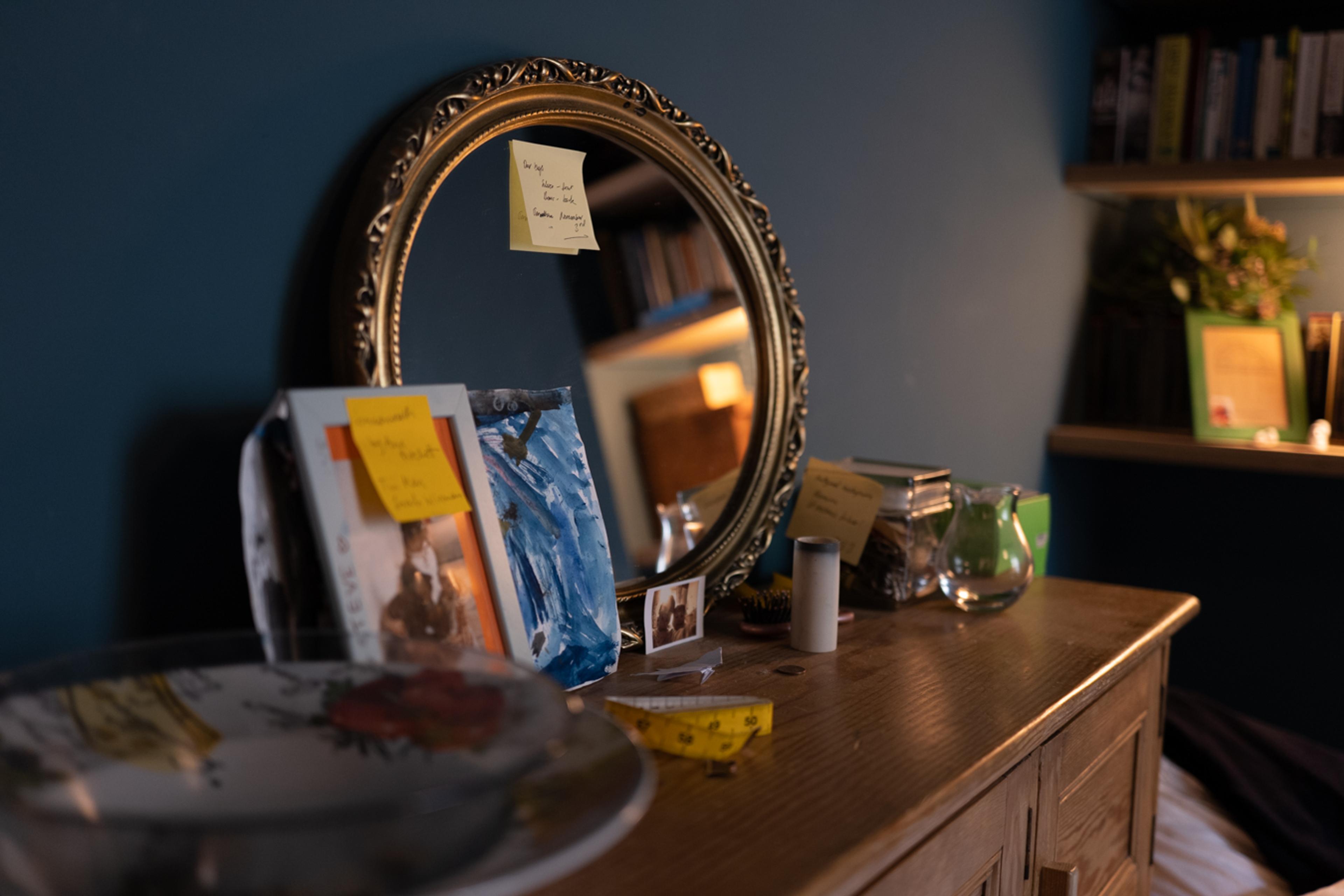In 1999, when James McKillop was 59 years old, he was diagnosed with dementia. Doctors said he would be lucky to live for another six years. ‘Go home,’ they told him, ‘and put your affairs in order.’ But his affairs were becoming only more disordered. Relationships were falling apart as his behaviour started to change, and when he began struggling to perform simple tasks at work, he lost his job managing a small team of clerical workers. Like many others who were diagnosed with dementia in the 20th century, McKillop was offered little post-diagnostic support beyond a prescription for antidepressants. The future seemed hopeless. His world was falling apart. At the time, a diagnosis of dementia felt to him like ‘a living death’. It is a view that is still held by many.
In 2024, one of the main charities for dementia research and care in the United Kingdom, the Alzheimer’s Society, released a fundraising video showing the funeral of a woman who died with dementia. Her son, holding back tears, tells the assembled mourners about the many ways his mother ‘died’ before her death: ‘Mum first died on 12 May 2019 when she couldn’t work out how to prepare her legendary roast anymore … She died again when she asked me, her son, what my name was.’
The pain of being forgotten is devastating, but as McKillop and many others have come to understand, dementia does not have to be like death, for either loved ones or those living with the condition. It does not have to be an ending. Today, as diagnoses increase worldwide, more of those living with the syndrome – like McKillop, who helped start the Scottish Dementia Working Group in 2002, one of the first advocacy groups of its kind – are pushing for a major shift in how the syndrome is viewed. They argue that dementia is not a hopeless affliction, and that post-diagnostic support should become more humane and scientific. Some are even calling for the condition to be completely reimagined. One patient, quoted in the dementia expert John Zeisel’s book I’m Still Here: A New Philosophy of Alzheimer’s Care (2009), goes so far as to describe it as ‘a new stage in a wonderful life, no less challenging or interesting than all the earlier stages’. Are these campaigners right to persuade us that dementia is a new stage in life, rather than a ‘living death’? Do we really need a new way to understand this syndrome?
Dementia is the name given to a range of diseases that affect the brain, including Alzheimer’s, Huntington’s and Parkinson’s, as well as specific brain conditions, such as vascular dementia and frontotemporal dementia. This form of cognitive decline was first identified by the German neuropathologist Alois Alzheimer in 1906 when he found, as he described it, an ‘unusual disease of the cerebral cortex’ in the brain of a deceased 55-year-old woman. The strangeness of the syndrome ensured it would remain poorly understood and largely ignored throughout the 20th century. In fact, until the 1970s, cognitive decline in older people was thought to be caused by the hardening of the blood vessels rather than changes in the brain. During this period, doctors didn’t think that much could be done about it and dementia was widely viewed as an inevitable and natural part of ageing; however, it is not. Yes, after 65 its prevalence doubles with every five years of increasing age, but there appear to be plenty of other things influencing its onset that go beyond the brain. The Lancet Commission on dementia prevention suggests that 12 factors account for around 40 per cent of cases, including hearing loss, traumatic brain injury, low level of early life education, air pollution, smoking, alcohol, high blood pressure, diabetes, physical inactivity and obesity, depression and, critically, social isolation. Evidence from long-term studies consistently shows that having more social participation in the middle and later stages of life is associated with 30 to 50 per cent lower risk of developing dementia. This represents one of the most important shifts in how the condition is understood.
The idea that dementia might be influenced by factors outside the brain’s biology first started to preoccupy researchers in the 1970s and ’80s based on a new ‘biopsychosocial’ understanding of the syndrome. Treatments began to focus on psychological symptoms arising from a person’s experience of living with dementia and the challenges of coping with those symptoms. The social psychologist Thomas Kitwood, based at University of Bradford in England throughout the ’80s and ’90s, is one of those who promoted this kind of approach. He believed we should treat the person rather than the condition, and that the experiences of people with dementia – including the psychological and social factors influencing their lives – were just as important as the neurological impairment inside the brain. Kitwood’s thinking has since influenced clinicians and campaigners around the world, including McKillop.
Meeting centres ensure that people with dementia stay integrated within their community
Person-centred approaches that focused on social factors grew only stronger toward the end of the 20th century. Rose-Marie Dröes, a professor of psychosocial care in dementia, was a young PhD student in the Netherlands when she started a research project in 1991 that led to a lifetime’s focus on the social dimensions of dementia. Her study involved movement therapy sessions with residents of a nursing home. Staff at the facility were amazed to find that those who often spent their days immobile and passive were, after participating in the sessions, transformed into people who, Dröes says, ‘looked at each other, talked, helped each other’. This made her realise that the behaviour associated with dementia was not entirely caused by the brain. ‘I thought it must be the environment, or because we’re not activating people or not listening or talking to people enough.’
What emerged from her work is a concept called the ‘meeting centre’, which is now ubiquitous in the Netherlands and emulated around the world. Meeting centres are places where people living with dementia and their carers can come for support, advice and meaningful, stimulating time in the company of others. They’re given help to adapt to their new lives. At some of these centres, people can stay the whole day, chatting, playing games, doing quizzes and cognitive exercises and cooking – sometimes with people from the local community who don’t have dementia. This is the opposite of the institutional model in which people are abandoned, ignored or sedated. Meeting centres ensure that people with dementia stay integrated within their community and do not lose the social bonds that help to keep the brain active and build what scientists call ‘cognitive reserve’, a form of resilience against the damage of the condition.
According to studies by Dröes and colleagues, people who attend meeting centres live independently for longer. After seven months in meeting centres only 4 per cent of people were admitted to a nursing home, compared with 30 per cent of people in conventional daycare settings.
In recent decades, this changing view of dementia has been amplified by researchers and authors who stress a more social and hopeful way of thinking about cognitive decline. Zeisel emphasises many of the strengths and capacities of people with dementia in his book I’m Still Here, reminding us how much of the brain remains intact, even as it changes: 70 to 90 billion active brain cells, he writes, ‘hold memories, the ability to learn, the ability to be creative, and to enjoy life’. The UK-based writer Wendy Mitchell, who died earlier this year with dementia, wrote the books Somebody I Used to Know (2018) and What I Wish People Knew About Dementia (2022), demonstrating that it was possible to communicate in writing even as speech became harder. ‘The hesitant verbal me can feel frustrating,’ she explained, ‘but the typing me feels calm, fluent and closer to my thoughts and feelings.’ In Japan, the author Yusuke Kakei’s bestselling ‘guidebook’ Ninchishō sekai no arukikata (2021), which translates as ‘walking in the world of dementia’, also sets out to correct biases in how people think of the condition. Kakei allows readers to encounter dementia as a different world with distinctive, sometimes strange customs.
Through the work of these and other authors, the ‘solution’ to the problem of dementia is changing. It’s not just about helping those with the disease better align with the world, it’s about changing the world to accommodate dementia. This idea, as the dementia expert Margreet Bruens explains, was developed by Kitwood during the 1990s when he claimed that the problem of dementia has everything to do with the fears of those without the syndrome. A primary fear is being forgotten by a loved one. No one can deny the pain of this experience. Nevertheless, our preoccupation with facts – the information that links us to each other – perhaps causes us to disregard other ways of understanding meaning in our relationships, such as touch, intuition and facial expressions. Semantic memory, Zeisel reminds us, is only a small part of our memories. People with dementia, he writes, may have trouble ‘recalling a name or a recently posed question’, but they can still access memories with emotional meaning, such as collective experiences, pieces of music and significant life events. What the brain is often missing, especially for older people, is the stimulation required to access these memories.
In an era of rapidly ageing populations, we need better ways of understanding the world of dementia
Around four or five years ago, a retired radio journalist in the UK called Willy Gilder noticed that a hobby he’d practised all his life, drawing, was becoming more and more difficult. When he sat down to draw, he struggled to capture what he saw around him. After receiving a diagnosis of Alzheimer’s disease in 2021, Gilder decided to test out the theory that music stimulates the brain. For two weeks he played the Beatles and the Rolling Stones, the music he loved as a teenager, at high volume. Miraculously, he found he could draw again.
There are several explanations for this story. According to the psychiatrist Yuto Satake, music may improve psychological wellbeing and motivation, which could explain Gilder’s renewed interest in drawing. Ming Hung Hsu, an expert in music therapy, suggests that music may increase activity across the brain, connecting different brain regions. In Gilder’s case, the songs he played may have helped him remaster the complex task of drawing. Future work on music and the brain may one day help us understand his experience better. What seems clear, however, is that our capacity for growth and creativity is not lost with a diagnosis of dementia.
We still have no cure for the neurodegenerative causes of dementia, which makes the exploration of the social and environmental aspects of the syndrome even more important and urgent. In an era of rapidly ageing populations, as more people than ever face the likelihood of cognitive decline, we need better ways of understanding the world of dementia. Look at James McKillop. Now in his 80s, he has lived with dementia for more than 20 years and has been at the forefront of an advocacy movement for those with the syndrome. He is still working, living and remembering – just differently.
No, dementia is not a living death. For those who are allowed to change, and supported and stimulated, it can mark a radical new beginning.








